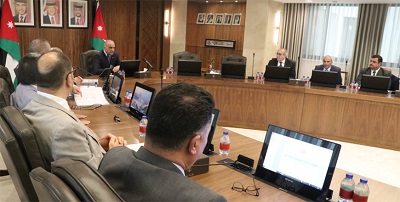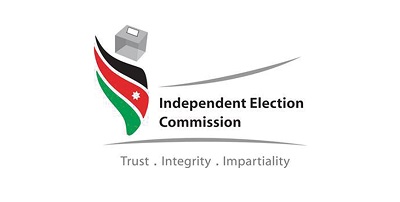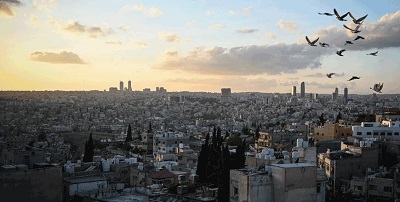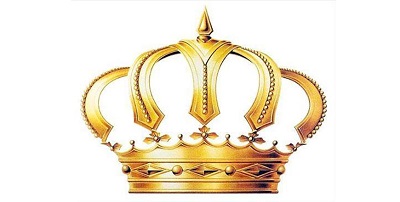Turkey-Russia Relations: Friend or Foe or Just Pragmatism - By Omer Onhon, Asharq Al-Awsat
Turkish-Russian relations have historical depth, marked mostly by conflict. Ottoman Empire and Tsarist Russia fought a dozen wars. During the First World War, they were on opposite sides. The two enjoyed fair to good relations during the Turkish War of Independence but even then, things were not as good as they looked. After the Second World War, the Soviets claimed some Turkish territories in eastern Anatolia and questioned Turkish sovereignty over the Turkish Straits. Turkey joined NATO in 1952 serving as the Alliance’s southern flank nation throughout the Cold War. After the collapse of the Soviet Union, Turkey and Russia were in competition for what some like to call the new great game over the Caucasus and Central Asia.
ADVERTISING
In the 18th and 19th centuries, Crimean Tatars, Circassians, Nogais ( Turkish ethnic group who live in the North Caucasus region), and many others of a shrinking Ottoman Empire had to flee their ancestral homes due to Russian advances. These people who found their new homes in Anatolia have also been a factor in Turkey-Russia relations.
Against this background, within the framework of the new strategic environment and developments in the international arena, Turkish-Russian relations gained a new momentum in the 2000s.
Presidents Erdoğan and Putin are regarded by many, as look-alike in their way of doing politics in general. They may not be the best of friends, (friendship defined by common ideals, lifestyles and pleasures) but they have established a kind of working relationship, based on mutual interest and benefit. This relationship plays a major and even central role in the present-day conduct of Turkey-Russia relations.
Bilateral relations between the two countries are quite active.
Trade volume is at an average of 25 billion dollars. At one point it was around 30 billion dollars. Despite a decline in its share, Russia is still Turkey’s main energy supplier, providing 34 per cent of its natural gas and 11 per cent of its oil. On the other side, Turkey’s exports to Russia are mainly agricultural products, machinery, land vehicles and textiles. All in all, around 80 per cent of bilateral trade volume is in favor of Russia.
But Turkey makes up for this deficit in the fields of services and construction. Turkey continues to be the major destination for Russians who adore its moderately priced all-inclusive five star resorts. The record was in 2019 with seven million Russian visitors. As to construction sector, up-to date, Turkey has completed around 1980 projects in Russia with a total value of around 75 billion dollars.
Turkey also serves as the transit carrier of Russian natural gas. The most recent joint project in this area is the TurkStream which has been officially inaugurated in 2020. This project connects Russia and Turkey with two 930 kilometers long offshore pipelines running under the Blacksea, one of which brings natural gas to Turkey. The other one is for gas destined for Europe.
Akkuyu Nuclear Power Plant, with a total project cost estimated at 20 billion dollars, is another strategic value cooperation. Its first reactor is planned to be operational in 2023.
On the world stage, Russia and Turkey keep running into each other in different theaters, such as Syria, Ukraine, Libya, south Caucasus, They are mostly on opposing sides and occasionally, they physically hurt each other. But on the whole, the two countries have managed to establish some sort of a dialogue and cooperation module in all these theaters.
Russia is a major actor in Syria and militarily active in the field. Astana Process has paved the way for cooperation between Turkey and Russia. But the potential for a rift is still very much present, especially in Idlib. Despite a 2018 agreement, half of the province has been captured by the regime and Russia. In the opposition-held and frequently targeted by the regime part of Idlib, thousands of armed militants of Hayat Tahrir al-Sham and other mostly radical groups are present.
At a press conference in Moscow on September 9 with Israeli Foreign Minister Lapid, in response to a question Minister Lavrov said: “Turkish colleagues need to fulfill the agreements reached by Presidents of Russia and Turkey in September 2018. These agreements provide for the separation of the normal, reasonable opposition from the terrorists, primarily from Hayat Tahrir al-Sham. This work is underway but, unfortunately, it is far from complete”. In the context of recent developments in Deraa, Lavrov stated that “in Deraa and on a broader plane, in Syria, no territories should be controlled by armed units other than the Syrian army.” What Lavrov said can be taken as a message as to what can be expected in the future.
What happens in Idlib and with its 3.4 million inhabitants in case of an all-out military campaign by the Assad regime and Russians, carries a potential for confrontation. In that regard, the attack on a Turkish patrol in Idlib on Saturday, killing two Turkish soldiers and wounding three, came at a critical time.
The 24 November 2015 incident, when Turkey shot down a Russian SU-24 military aircraft in Syria, was a clear example of how things could turn very sour between the two countries. Russia halted almost everything from Turkish businesses on its territories, to Russians visiting Turkey. Turkish military activities in Syria were also seriously affected. Russia enforced its position in Syria with sophisticated military hardware including air defense systems. It took a lot of effort and almost a year to straighten out relations.
In Libya, Turkey and Russia have faced each other with various fighting elements. Turkish involvement on behalf of the Government of National Accord changed the course of the war. Russia and its side did not end up on top. But neither seems discontent with the turn of events, at least for now.
In 2020, Azerbaijan, supported by Turkey, was able to liberate its territories under Armenian occupation. Turkey carved its mark in the Caucasus demonstrating that it is a force that counts. Turkey also further solidified its alliance with Azerbaijan and won points with its kin in the Caucasus and Central Asia. On part of Russia, not-so-Russia-friendly Prime Minister Pashinyan learned a lesson. Russia managed to engineer a ceasefire and under the terms of the ceasefire agreement, was back on the Azeri soil for the first time since 1990. In any case, both Turkey and Russia played it well in preventing things from taking a different shape and turn into a conflict between themselves.
Turkey and Russia are also on opposite sides on Ukraine. Turkey’s openly declared position is that it does not recognize the annexation of Crimea. Russia does not seem to mind this, as long as political positions are not turned into some sort of action. But the Russians follow with dissatisfaction and some concern, recent defense cooperation between Turkey and Ukraine, in particular, transfer of Turkish killer drones.
Afghanistan may become another file either for cooperation or confrontation between the two countries, depending on how things develop over there. The reasons are not entirely clear for everyone, but Turkey seems keen to assume a role in new Afghanistan. Russia regards Afghanistan basically from a security point of view, with particular reference to Central Asian countries. This region is crucial for Russia in terms of its strategic value, near abroad concept and the Russian-led Collective Security Organization.
One other issue of particular importance and with a strong NATO angle is the Black Sea and the Montreux Convention. Russia does not want NATO vessels in the Black Sea and is adamant about preserving the Convention as it is, which regulates the passage of warships through the Turkish Straits and limits their presence. The Turkish President’s most favored and politically advertised Canal Istanbul Project has raised some questions as to whether the Convention will have to be altered or not. Turkey’s position does not seem to be in contradiction to Russia’s.
The most important development in bilateral relations with far-reaching implications has been Turkey’s acquisition of S-400 air defense systems from Russia. The US and some other NATO Allies reacted strongly. The US went so far as imposing CAATSA (Countering America’s Adversaries Through Sanctions Act) sanctions on Turkey. Many in the West continue to present the S-400 issue as yet another proof of Turkey drifting away from NATO and the West.
Turkey’s side of the story is quite different. For some time now, Turkey has felt very unfairly treated by the EU or the West in general. It felt left out in the cold by its Allies on a number of occasions. Turkey’s EU accession negotiations are in deep freeze. Arms sales from many Allied countries including the USA, Canada, France and Germany are either restricted or in some cases, banned altogether. Turkey has argued that it had attempted to purchase air defense systems from the US and other western nations but was turned down. Russia, on the other hand, was more than ready to sell and Turkey opted for where it was possible to purchase the much-needed system.
Turks of different political convictions which rarely agree on anything, are of the same opinion that Turkey’s moves are not out of love for Russia but a consequence of the negative treatment of its Western Allies and partners.
In any case, Russia is happy. It managed to sell one of its multi-billion dollars weapons system, created a rift within NATO and further troubled the already strained relations between Turkey and the West.
Turkey is a member of an Alliance which identifies Russia as the main threat in a deteriorating security environment. But there is nothing to prevent Turkey, or any other member country for that matter, to engage with Russia in various fields, based on mutual benefit and respect, without contradicting NATO commitments and obligations. In any case, it is equally true that Turkey which enjoys good relations with its western allies and partners will be much better positioned in its dealings with Russia, compared to Turkey which is left alone by its allies and partners.
In conclusion, Turkey and Russia may have diverging positions on a number of issues, some with a potential for direct or indirect confrontation. But, for now, their relations seem to be governed by pragmatism. Even though a lot of patience and some occasional looking the other way may be needed in these relations, both countries seem to realize that dialogue and cooperation are better than confrontation; so long as it is possible.
Latest News
 Prime minister directs government to support IEC ahead of upcoming elections
Prime minister directs government to support IEC ahead of upcoming elections Parliamentary elections for 20th Lower House to be held on September 10 – IEC
Parliamentary elections for 20th Lower House to be held on September 10 – IEC Amman Chamber of Commerce says GDP grows by 4.4% in 2023
Amman Chamber of Commerce says GDP grows by 4.4% in 2023 King orders holding parliamentary elections in accordance with law, checks on electoral commission’s preparations
King orders holding parliamentary elections in accordance with law, checks on electoral commission’s preparations- N. Macedonia starts elections that could decide stalled EU talks
Most Read Articles
- Palestinian prime minister, Jordanian ambassador discuss humanitarian efforts in Palestine
- US president signs bill to provide new aid for Ukraine
- Prime minister directs government to support IEC ahead of upcoming elections
- Senate president, Rwanda’s ambassador discuss bilateral relations
- 'Sinwar Above Ground': Hamas official's revelation shocks Israeli Occupation
- Iran cuts Syria presence after strikes blamed on Israel —monitor
- US Supreme Court seems split on Idaho abortion ban
- Vaccines saved at least 154 million lives in 50 years — WHO
- Four dead as floods wreak havoc in Kenyan capital
- UAE announces $544m for repairs after record rains